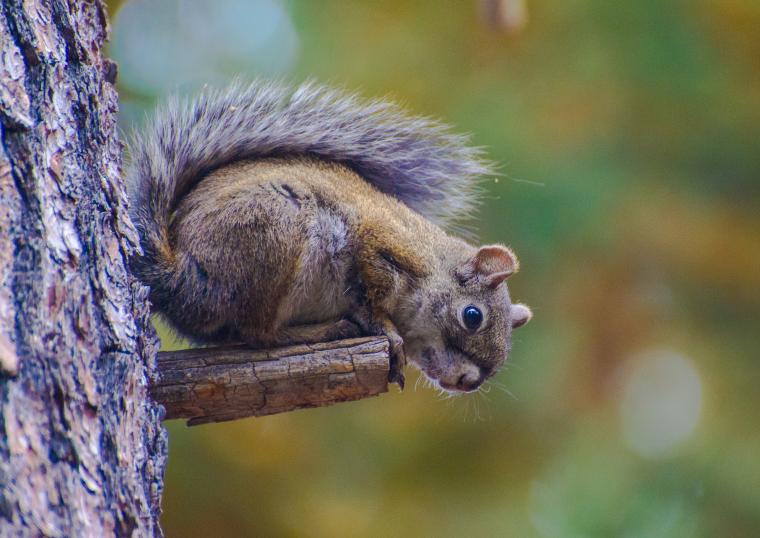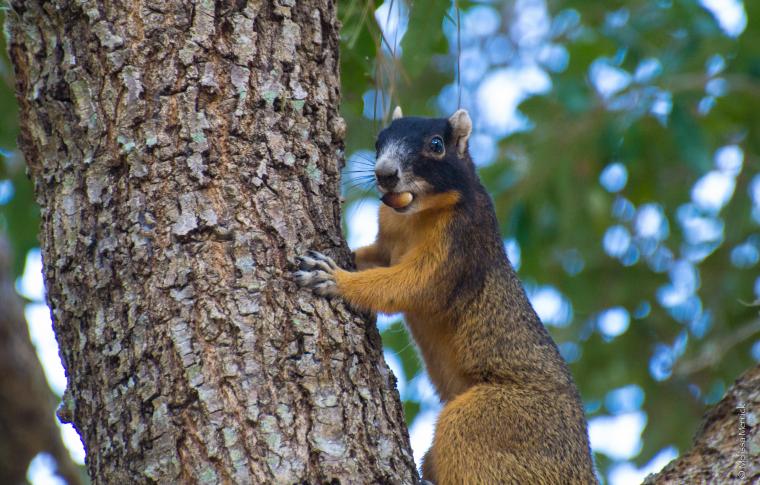Congratulations to Dr. Kira Hefty!
We are excited to congratulate soon-to-be Dr. Kira Hefty on the successful defense of her dissertation! Kira examined the synergistic effects of natural disturbance, climate change, and human-induced changes on rare species, the Big Cypress fox squirrel and the Mt. Graham red squirrel. Her results inform management decisions to improve habitat availability for threatened and endangered species following natural disasters such as hurricanes and wildfires, increasing the resilience of these communities against climate change.
To find out more about Kira's work, you can read more here or read her abstract below:
Title: Effects of heterogeneous and highly altered environments on the distribution of imperiled wildlife and their habitat
Mt.GrahamRedSquirrel_PostFire.jpg

Abstract
Historic and current human activity coupled with changing climate conditions have directly and indirectly altered habitat available for wildlife and have affected how ecological communities respond to and recover from natural disturbance. In light of these challenges, natural resource management has sought to restore historic functioning ecosystem conditions to support wildlife conservation efforts, however, traditional management practices may not be equipped to accommodate future uncertainty associated with the additive and synergistic effects of climate change, natural disturbance, and human-altered environmental conditions. Our research addresses how altered habitat conditions and high intensity natural disturbances are affecting both wildlife distribution and habitat as well as the effectiveness of current management strategies for supporting wildlife conservation efforts and promoting ecosystem resilience. Using a combination of field surveys and remotely sensed data, we specifically researched wildlife occupancy, landscape connectivity, change in habitat availability, and abiotic and biotic habitat conditions in pre- and post-disturbance landscapes. Our study took place in two localities which are characterized by rapidly changing environmental conditions. In freshwater forested wetlands in southwest Florida, USA, we investigated how habitat degradation has impacted the occurrence of the state-threatened Big Cypress fox squirrel (Sciurus niger avicennia) on public lands. In southeast Arizona, USA, we investigated how two recent large-scale wildfires have altered habitat availability for the federally endangered Mount Graham red squirrel (Tamiasciurus fremonti grahamensis) and examined whether recent pre-fire forest treatments were effective in promoting forest resilience and conserving habitat for Mount Graham red squirrels through wildfire. Our findings demonstrate the need to incorporate science-based investigation and monitoring into conservation planning to better prepare for and respond to changing habitat and disturbance regimes.



